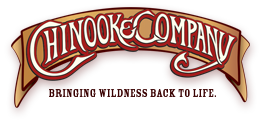- Continue Shopping
- Your Cart is Empty
Sustainability Commitment
Our Sustainability Commitment
Salmon are a symbol of our time, icons of the Northwest, and an indicator of environ-mental quality—a river full of salmon is a healthy river. David Montgomery, King of Fish
Today, many people are making food choices relevant to their own health as well as the health of the environment. At Chinook & Company we are committed to the celebration, preservation, and protection of an economy and culture built around wild salmon and the watersheds upon which they depend. The balance of nature in the magnificent coastal regions of Alaska requires a sustainable catch, nurturing existing watersheds, and commitment to ecologically-minded business practices. Since statehood in 1959, Alaska’s constitution mandated that “fish . . .be utilized, developed and maintained on the sustained yield principle.” Enforced for nearly five decades, the state’s successful management practices have become a model of sustainability for the world. We hope to inspire your similar commitment by sharing our delicious wild salmon and our love for the place from which they come. At Chinook & Company, our motto is Bringing Wildness Back to Life.

Wild salmon survive best in pristine natural environments with free flowing rivers and clear clean lakes for the species that spend a year or two before migrating to sea. Wild salmon must survive a multitude of human, avian, and marine predators from the time they leave their spawning beds until they return to bring life to the next generation. For two to six years depending on the species, they migrate thousands of miles of open ocean, foraging on natural foods until they reach maturity. At the end of their journey, the survivors return to the place of their birth to spawn, completing a cycle that has been going on for millions of years. If the streams, rivers, and estuaries upon which the salmon depend are not healthy, nourishing, and alive, the great salmon runs of the Pacific will vanish. Only humans and natural disasters threaten these watersheds.






